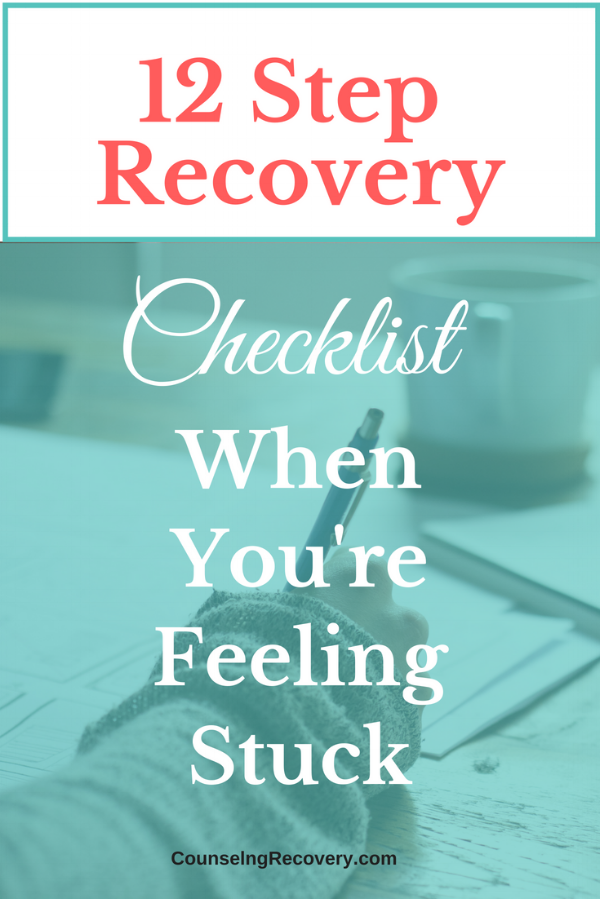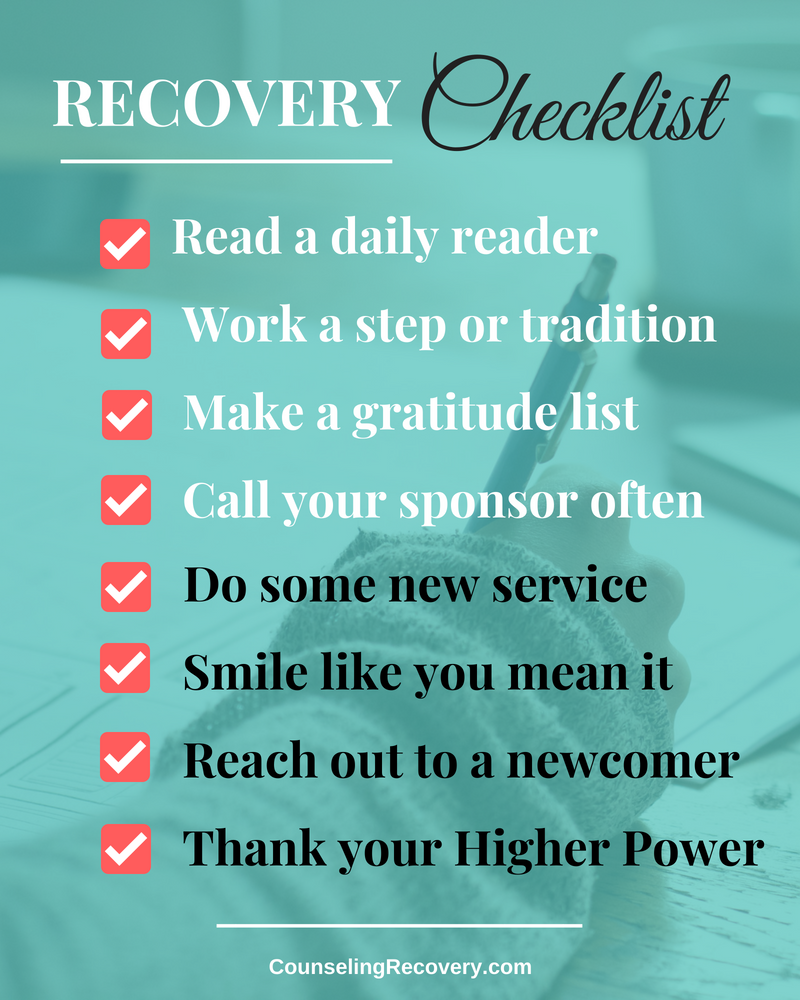12 Step Recovery Checklist When You're Feeling Stuck
Working a 12 step recovery program isn't the easier, softer way. It takes perseverance to keep going. When you first get into recovery, you're making important discoveries about yourself. You begin to see things in a new light.
Going to meetings makes you feel connected to something bigger than yourself. You become a part of a new family and everything feels amazing - for awhile.
Often, the excitement starts to wear off between years 3-5 in recovery. You start questioning whether or not you still need the program. Meetings feel like a chore and certain members may even annoy you. But, things are going just fine.
We don't recognize that this is the fork in the road. At this point you can decide to leave the program and practice self-will (which maybe you've already started) or dive deeper into your program and get THE PROMISES the Big Book talks about!
You will get your lessons either way. There is no right wrong in recovery, only an invitation to grow.
1. It's Normal to Want to Bail
Personal growth is the road less traveled for a reason; it can be painful. Living a sober life goes against the norm. It takes a strong commitment to look at yourself honestly and not blame others for your lot in life.
Maybe, you've been thinking about leaving the program for awhile or you're feeling stuck. Most people who leave find their way back, and when they do, they all say the same thing - “I wish I never left.”
The best thing about people in recovery is their willingness to welcome you back with open arms. No judgment, no probing questions - just love.
Whether you have actually left the program or have started fading away, here are some helpful tips to get you back into recovery.
2. Start Reading - Again!
The program has books called daily readers which focus on sober living. Each day covers a different aspect of spiritual and emotional growth.
Many use this tool to develop a daily ritual. This becomes part of your morning routine instead of immediately getting online. You'll probably notice a big difference in your stress level by creating that pause before your day begins.
Spending 5-10 minutes with your book and a cup of coffee is all you need. Some light a candle for a focal point.
If you're resistant, just read two sentences. Implementing a regular, spiritual practice can start today.
3. Get Back into the Steps
There is nothing more grounding in the program than working one of the 12 steps. Writing out a step immediately puts you back into growth mode. Here are a few ways to start.
Admitting powerlessness helps you not take responsibility for everything.
Writing a short inventory clarifies your part in the situation.
Acknowledging a defect of character keeps us humble.
Making an amends heals old hurts and restores lost connections.
Working the steps is the fastest way to re-commit to your own recovery. It’s the heart of making positive changes. Getting rid of old hurts and accepting life on life's terms is what the program offers. These principles are the roadmap for healing.
4. Embrace the Resistance
If you are tempted to leave the program, trust that there is a reason. Resistance is not a defect of character or a judgment. It’s normal to resist growth because self-examination is hard. It's much easier to look at what everyone else is doing.
Instead of fighting the resistance, learn to embrace it. Get to what's underneath it by doing some writing. This is a great way to discover your truth without censoring yourself. It may not be pretty but it's honest.
For instance, you might be afraid to take action or let go of a relationship that's no longer working. Try practicing the acronym FEAR - Face Everything And Recover! That's how the promises come true, by facing your fears one day at a time.
5. Identify a Goal
Recovery works best when you have a purpose, otherwise you’re just going through the motions. Ask yourself, what areas of your life still hurt? Is it an important relationship that feels incomplete or a change you want to make but you don't think it's possible?
If relationships are still painful, check out Al-Anon to learn how to move past childhood pain and get healthy strategies. This program is centered around healing relationships.
Final Thoughts
There are many paths in (and out) of recovery. You get to decide what's best for you. Finding a safe place to get support is a must for anyone doing personal growth work. 12 step programs provide an opportunity to create the life you’ve always wanted - if you want it.


